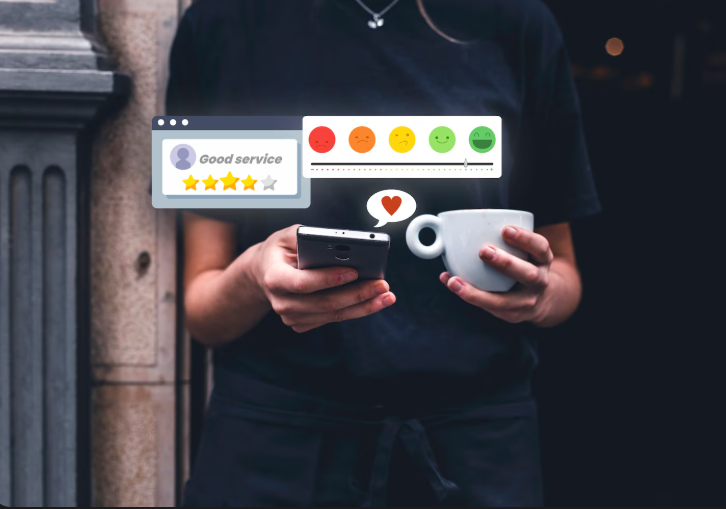With customers turning to Google and social media to validate brands before making decisions, one negative review or misleading post can cause long-term damage.
This is why businesses across industries are increasingly partnering with ORM companies in India to safeguard their digital presence. Whether it’s responding to negative feedback, promoting positive brand stories, or monitoring online mentions, ORM experts ensure that a brand maintains credibility and trust in an ever-competitive environment.
Online reputation management has evolved from being a reactive process to a strategic business requirement. This blog explores why Indian ORM companies are becoming the go-to partners for businesses worldwide. We’ll discuss their expertise, affordability, and technological edge while helping you understand how to select the right ORM partner. By the end, you’ll see why collaborating with Aiplex ORM can be one of the smartest moves for your brand’s online journey. Discover more about Aiplex ORM’s services.
Things to Know Before Partnering with ORM Companies in India
Before diving into the world of online reputation management, it’s important to understand the essential factors that define a successful ORM collaboration. From strategy alignment to data transparency, preparation is key to maximizing results.
Understanding the Importance of Online Reputation
The digital footprint of a brand can determine its market success. Today, consumers read reviews, articles, and comments before making a purchase. A single negative review can influence decisions, while a consistent stream of positive feedback can enhance conversions. ORM ensures that every digital impression supports your brand goals.
In India, ORM experts focus on proactive reputation building rather than just crisis management. They use sentiment analysis tools, review management systems, and brand monitoring techniques to detect and address potential risks early. This approach helps businesses build long-term credibility across platforms.
Assessing Your ORM Goals and Expectations
Before hiring an ORM company, it’s vital to identify your objectives. Do you want to improve customer reviews, remove harmful content, or boost brand perception? Clear goals enable the agency to craft a customized strategy tailored to your industry and audience.
Indian ORM firms like Aiplex ORM begin with a comprehensive reputation audit. This helps them evaluate your brand’s current standing and create a roadmap that prioritizes both short-term recovery and long-term growth. Setting measurable KPIs ensures accountability and transparency throughout the process.
Evaluating Cost and Service Scope
One of the main reasons businesses prefer ORM companies in India is their competitive pricing. Compared to global agencies, Indian ORM firms offer high-quality services at affordable rates without compromising efficiency. This makes them ideal partners for startups and large enterprises alike.
However, understanding the scope of services is equally important. ORM involves monitoring, content creation, SEO, and digital PR. A reputable firm provides an all-in-one solution to enhance your online image, ensuring value for every investment you make.
Checking Industry Experience and Case Studies
Experience speaks volumes in online reputation management. ORM companies in India handle diverse industries, from healthcare and finance to e-commerce and entertainment. Their adaptability ensures they understand unique audience behaviors and challenges.
Before finalizing a partner, ask for case studies or examples of previous success. Reviewing these insights reveals how well the firm handles crises, manages brand narratives, and maintains consistent reputation scores over time.
Technology and Tools Used in ORM
Technology is the backbone of modern ORM. Indian firms leverage AI-driven sentiment analysis, social listening tools, and automation to streamline monitoring and response times. These technologies ensure real-time updates and quick intervention when negative content appears.
Aiplex ORM, for instance, employs advanced analytics and reporting dashboards to give clients a transparent overview of their reputation. With access to cutting-edge software, they ensure every mention, review, or article is managed effectively and aligned with brand strategy.
Top Reasons Businesses Choose ORM Companies in India
India has emerged as a global hub for digital services, and ORM is no exception. Businesses worldwide are drawn to Indian agencies for their combination of expertise, scalability, and innovation.
Indian ORM firms bring a mix of digital marketing knowledge, content creation expertise, and technical excellence. They understand global brand psychology while tailoring solutions for local relevance. This unique blend makes them capable of handling international projects with precision and cultural sensitivity.
Another driving factor is their customer-first approach. Indian ORM agencies, including Aiplex ORM, maintain transparent communication and provide customized service packages. Their proactive engagement and commitment to delivering measurable results help build long-term client relationships across continents.
Key Services Offered by ORM Companies in India
ORM companies in India provide comprehensive reputation management solutions that cover every aspect of your online image. These include brand monitoring, review management, crisis response, and content optimization.
They continuously track mentions across websites, news portals, and social media to ensure immediate action when necessary. From handling negative reviews to promoting positive narratives, their goal is to control the brand story in digital spaces.
Additionally, Indian ORM agencies specialize in reputation repair services. They use SEO and content marketing to push positive content higher on search engines while reducing the visibility of unfavorable results. These integrated solutions help brands maintain trust and credibility.
Benefits of Outsourcing ORM to Indian Experts
Outsourcing ORM to India offers multiple advantages beyond cost savings. Businesses gain access to a skilled workforce familiar with global digital trends and equipped with modern technology. The time-zone advantage ensures round-the-clock monitoring and quicker response times.
Moreover, Indian ORM professionals combine creativity with data-driven insights. Their cultural adaptability allows them to handle diverse client needs, from small businesses to multinational corporations. By partnering with Indian experts, brands can ensure consistent reputation monitoring and improvement.
How to Select the Right ORM Partner for Your Brand
Selecting an ORM partner involves research and evaluation. Businesses should look for experience, transparency, and a proven record of success. Aiplex ORM, for example, offers custom solutions that align with specific brand goals and market dynamics.
Always check the agency’s reporting structure and communication protocols. A good ORM partner should provide detailed progress reports, insights into campaign performance, and regular strategy reviews. This ensures clarity and trust throughout the engagement.
Why Choose Aiplex ORM for Your Online Reputation Management
Aiplex ORM stands out among the leading ORM companies in India for its data-driven approach and customer-centric philosophy. The company combines deep industry expertise with advanced technology to deliver measurable improvements in brand perception. Their team continuously monitors digital channels to ensure your reputation remains strong and consistent.
What truly differentiates Aiplex ORM is its proactive methodology. Instead of reacting to crises, the firm emphasizes preventive ORM strategies that build long-term trust and brand equity. With tailored solutions, expert content creation, and AI-enabled monitoring, Aiplex ORM empowers businesses to shape how they are perceived online. Learn more about Aiplex ORM’s solutions here.
Conclusion
In the digital age, online reputation defines brand credibility. Partnering with experienced ORM companies in India allows businesses to protect and enhance their public image efficiently. From real-time monitoring to positive brand storytelling, these agencies offer end-to-end management that directly impacts growth and trust.
Aiplex ORM exemplifies the excellence and innovation that make India a top choice for ORM services. With its commitment to transparency, advanced technology, and client satisfaction, Aiplex ensures every brand achieves sustainable reputation success. For businesses aiming to thrive online, investing in ORM is not just an option—it’s a necessity.








